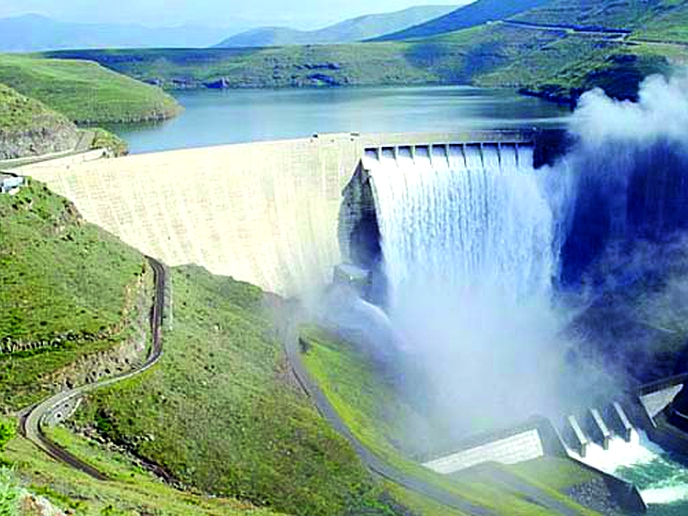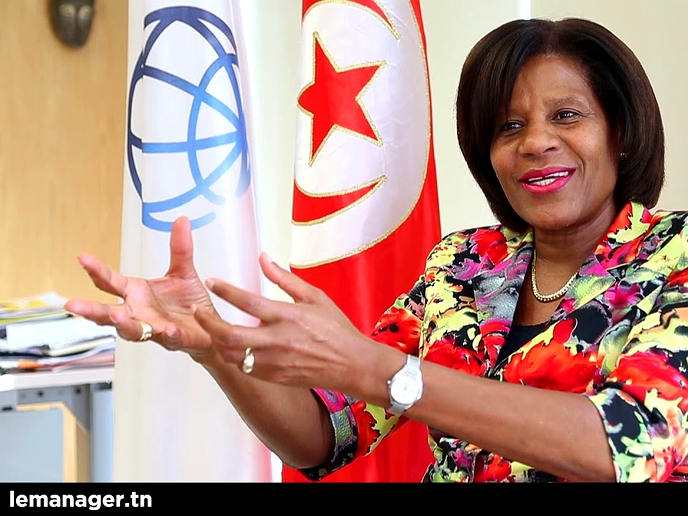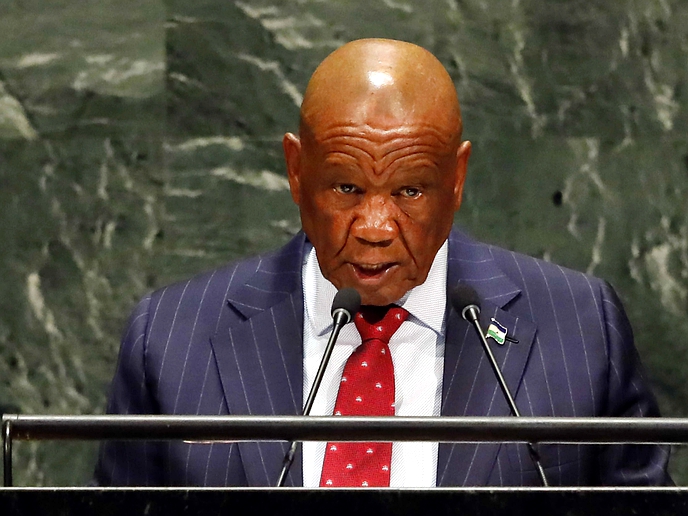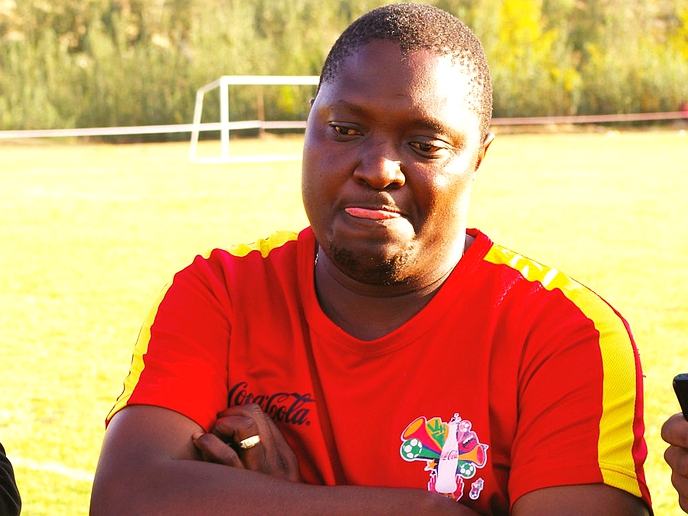…It’s time to end the plunder of Africa’s resources The United Nations Conference on Trade and Development (UNCTAD) recently released its flagship Economic Development in Africa Report 2020 titled, Tackling Financial Flows for Sustainable Development in Africa. The report includes alarming information on how Africa loses billions yearly as a result of illicit financial flows (IFFs) and highlights the impact of such losses on the development of the continent. Africa Renewa’s Kingsley Ighobor interviewed Paul Akiwumi, UNCTAD’s Director, Division for Africa, LDCs and Special Programmes, about the report. These are excerpts from the interview:
business
Dec. 17, 2020
KINGSLEY IGHOBOR
8 min read
Illicit Financial Flows
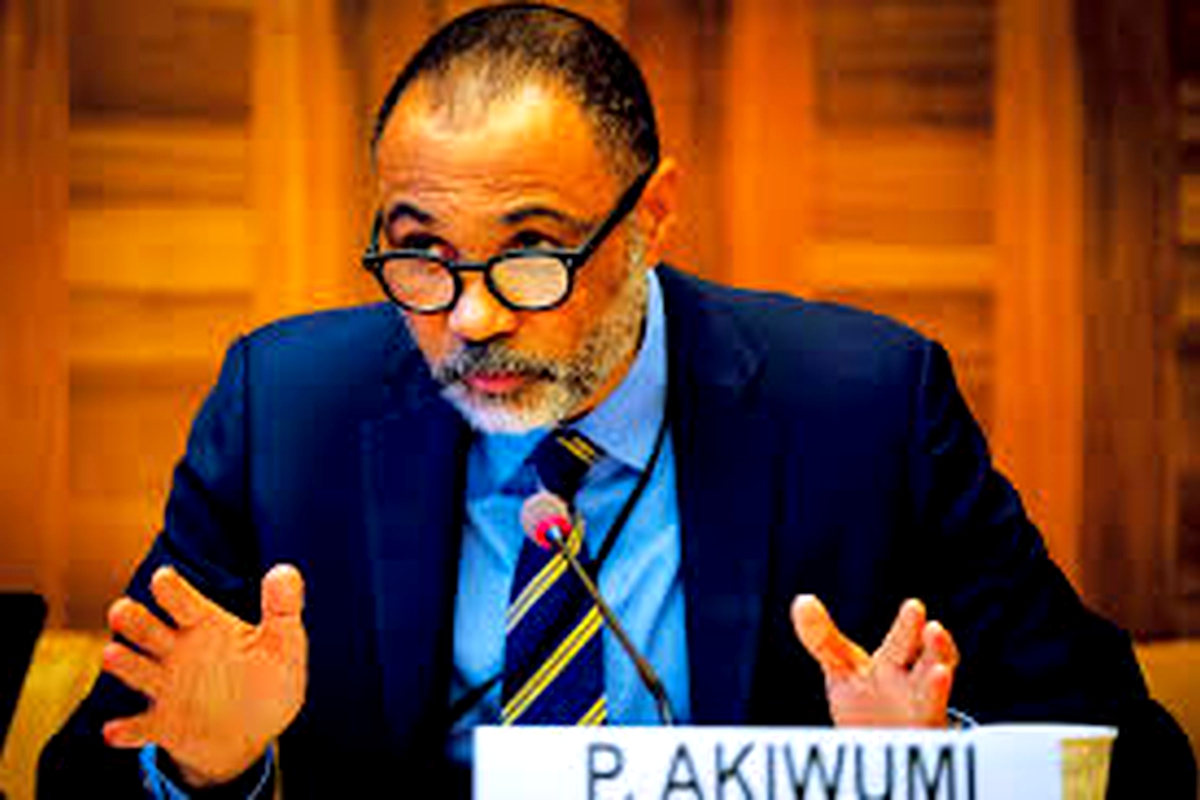
Paul Akiwumi, UNCTAD’s Director for Africa, LDCs and Special Programmes
What are the key takeaways from your recently released report on Tackling Illicit Financial Flows for Sustainable Development in Africa?
This report is extremely timely because we have 10 years left to achieve the SDGs [Sustainable Development Goals], and then we have the ongoing COVID-19 crisis. Africa needs adequate financial resources to implement the SDGs and tackle the pandemic and its fallouts. There is a need for domestic resource mobilization, so that countries are equipped with the adequate financing to address these challenges head on.
In March this year, the President of the UN General Assembly and the President of the UN Economic and Social Council established a 15-member panel on Financial Accountability, Transparency and Integrity (FACTI Panel) to look at ways to address IFFs, among other issues. Before then, in 2015, the Thabo Mbeki-led High-level Panel on Illicit Financial Flows from Africa presented a report that brought the problem of IFFs to light.
Our new report updates the discussion on IFFs in Africa and looks deeply at the numbers.
We identified four broad categories of IFFs - tax and commercial practices, illegal markets, theft type and terrorism financing, and corruption.
The analysis in the report focuses on trade mis-invoicing and capital flight. This is important for Africa because the continent gets 85 percent of its resources from the extractive sector. Most IFFs are happening in that sector. Africa loses between $30 billion ($1=M15) and $52 billion per year due to trade mis-invoicing, particularly under-invoicing in the extractive sector.
This report is not just about putting a number on the amount of IFFs, it is also about its impact on development. And there is a significant impact on development. IFFs are not only a drain on domestic financial resources; they also correlate with lower government spending on key areas for development. Many African countries with large amounts of IFFs spend 25 per cent less on the health sector and 58 per cent less on the education sector than countries without such problems.
The report indicates Africa is losing a whopping $88.6 billion annually?
Yes. We have estimated that some $88.6 billion per year leave the continent due to capital flight. The numbers are large, and they are growing. To give an idea, curbing the current annual illicit capital flight from Africa could bridge about half of Africa’s annual SDG financing gap of $200 billion.
Broadly, what is the impact of IFFs on countries’ ability to achieve the SDGs?
Africa needs approximately $200 billion a year to implement SDGs. It follows that the capital flight as a result of IFFs is already almost half of the $200 billion the continent needs annually. In addition, this capital flight is more than the flows of ODA [Official Development Assistance] coming into the continent and more than FDI [Foreign Direct Investment] coming in as well. This affects not only development prospects for the continent but also countries’ ability to accumulate capital and service their debts.
Why are African countries unable to stem IFFs?
Well, it’s due to several factors: not having strong institutions, not having the right capacity and not collecting the right data. When you collect data, you can see who is accountable and who's not accountable.
Also, many African countries do not have the capacity to monitor the large multinational firms operating in the extractive sector. Therefore, there is a clear need to collect more and better data, build strong institutions and enforce regulatory tax measures.
Remember also that harmonization of taxation, coupled with strong tax regimes, will very much support the implementation of the African Continental Free Trade Agreement [AfCFTA], which is set to start trading next year.
That’s a good question because, first, IFFs are not just an African issue, it is a global issue, and you have to have a global response to it, including global cooperation and partnerships. Second, multinational companies need to step up, and African countries need to actively participate in the global tax review regimes such as the Global Forum on Transparency and Exchange of Information for Tax Purposes, the Inclusive Framework on Base Erosion and Profit Shifting (BEPS) the United Nations Committee of Experts on International Cooperation in Tax Matters or the United Nations, the World Bank, International Monetary Fund and OECD [Organisation for Economic Co-operation and Development]-managed Platform for Collaboration on Tax.
Currently, African countries are invited only as observers, but they need to play an active role so that they can contribute to the global policy on tax regimes and tax systems that are put in place for multinational companies.
African countries must have a stake the tax review regimes too t. We are strongly recommending that the African Union (AU) has a committee that deals with taxes, and that they give that committee authority and power to ensure a harmonization of tax regimes.
Because, right now, there's a race to the bottom in the extractive sector. Several countries are trying to set lower taxes in the hope that multinationals will come to their country.
How do you think the home countries of these multinationals can help tackle IFFs?
As I said, it must be a global effort. Donor countries, leading global economies should encourage their multinationals to share data on the extractive sector. Governments need to know what has been taken out of Africa. Multinationals must be transparent about this.
Enjoy our daily newsletter from today
Access exclusive newsletters, along with previews of new media releases.
There’s often talk that IFFs is a two-way traffic, and that some African officials may be involved. Is that not so?
It is very complex. For sure, as I mentioned, institutions are weaker in countries with high illicit financial outflows. Regulatory frameworks are weaker in countries with high IFFs. So, naturally, having weak institutions will only perpetuate IFFs. To combat this phenomenon, it's important that governments have strong institutions, together with enhanced transparency, better recorded data and information. And that is why the media, NGOs, civil society, and everybody need to be involved.
What is your take on the debate regarding tax avoidance and the fact that many actors, even within the UN system, according to your report, are reluctant to have tax avoidance be part of IFFs?
Tax avoidance is really not illegal. It depends on the legal frameworks in place in different jurisdictions. Tax avoidance is finding loopholes in the regulatory frameworks and taking advantage of such loopholes. In countries with weak regulatory frameworks, it is easier to find them. It is also about shifting profits to the most lucrative country in which to pay the least amount of taxes. So, African countries need to strengthen their regulatory frameworks and harmonize their taxation systems.
Is there a sense that the current situation regarding IFFs could hamper the effective implementation of the African Continental Free Trade Agreement?
The implementation of the AfCFTA is a long journey, and this is one of the steps that should be looked at, as well as trade and industrial policies, and means to coordinate support to the AfCFTA. It is important that governments have the political will and the political stamina to stay on this long journey. It's not a sprint; it is a marathon race because the AfCFTA will be the largest free trade area in the world, which will bring great opportunities for African countries and their people.
Could value addition to Africa’s commodities be a way to address IFFs?
It would certainly help. The African continent holds critical natural resources: about 30 per cent of global mineral reserves, 8 percent of oil and 7 percent of natural gas reserves. Furthermore, the continent also holds significant deposits of critical metal reserves like lithium for new battery storage technologies needed for the global transition to a low-carbon future. To better insulate against foreign shocks, countries need to retain more value from their natural resources. Over the long-term, this can be achieved through greater economic diversification and processing of commodities on the continent. In the medium-term better resource governance is necessary. Let’s not forget that illicit trade in extractive resources has an unquantifiable multiplier effects because it undermines peace and security, which can stall development for decades With the AfCFTA, hopefully, countries will be able to build the capacity needed to manufacture and add value to their commodities.
How much has COVID-19 complicated the effort to tackle IFFs?
Well, fewer commodities are being exported because of shutdowns in many developed countries. That's had an impact on not only IFFs but also on government revenues. Governments have less to spend on development projects. And that is why it’s important to add value to our commodities.
We see that countries with limited productive capacities will suffer and will have more difficulties recovering from the pandemic. At UNCTAD, we see productive capacities as the productive resources, entrepreneurial capabilities and production linkages that enable a country to produce goods and services and enable it to grow and develop. These are essential. This has been the worst economic crisis for Africa in a very long time. As countries recover, they will need to be cognizant not to put a plaster on a gaping wound. It's about long-term development, the capacity to diversify their economies in order to achieve sustainable, structural transformation.
Your report is very provocative, and I think it could create a sense of urgency for African policymakers. How do you get the AU, governments, regional institutions and other stakeholders to implement your recommendations?
First, we are conducting a lot of outreach. We launched the report with the vice president of Nigeria [Mr. Yemi Osinbajo] because, Nigeria, as you know, is the AU champion for IFFs, and Nigeria is taking considerable institutional steps to curb IFFs domestically.
Second, we are having a lot of technical discussions and outreach to all AU Member States. We have had developing countries in Africa and in Europe requesting from us more technical discussions so they can understand more clearly what the issues are.
Third, we have made considerable outreach to NGOs and civil society.
Lastly, we have had a lot of engagement from overseas development agencies. We are also talking to the whole UN system about IFFs.
What one key message would you give Africans?
My message is that Africans should not let anybody plunder Africa’s resources anymore. The time has come for Africa to say no and to make sure that their resources benefit the continent and its people. I believe this is possible. I believe that it has to be done now.
Tailored for you



